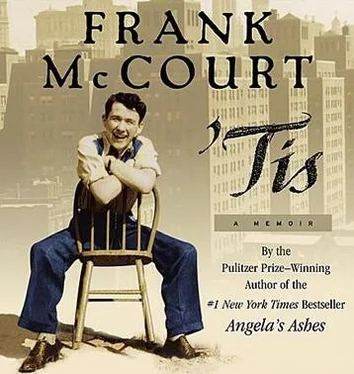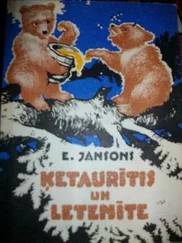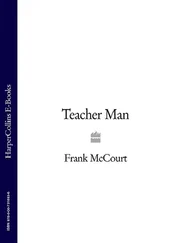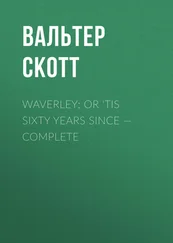Frank McCourt - 'Tis
Здесь есть возможность читать онлайн «Frank McCourt - 'Tis» весь текст электронной книги совершенно бесплатно (целиком полную версию без сокращений). В некоторых случаях можно слушать аудио, скачать через торрент в формате fb2 и присутствует краткое содержание. Жанр: Старинная литература, на английском языке. Описание произведения, (предисловие) а так же отзывы посетителей доступны на портале библиотеки ЛибКат.
- Название:'Tis
- Автор:
- Жанр:
- Год:неизвестен
- ISBN:нет данных
- Рейтинг книги:3 / 5. Голосов: 1
-
Избранное:Добавить в избранное
- Отзывы:
-
Ваша оценка:
- 60
- 1
- 2
- 3
- 4
- 5
'Tis: краткое содержание, описание и аннотация
Предлагаем к чтению аннотацию, описание, краткое содержание или предисловие (зависит от того, что написал сам автор книги «'Tis»). Если вы не нашли необходимую информацию о книге — напишите в комментариях, мы постараемся отыскать её.
'Tis — читать онлайн бесплатно полную книгу (весь текст) целиком
Ниже представлен текст книги, разбитый по страницам. Система сохранения места последней прочитанной страницы, позволяет с удобством читать онлайн бесплатно книгу «'Tis», без необходимости каждый раз заново искать на чём Вы остановились. Поставьте закладку, и сможете в любой момент перейти на страницу, на которой закончили чтение.
Интервал:
Закладка:
Since I’m not a high school graduate and work full time I’m allowed to take only two courses, Introduction to Literature and the History of Education in America. I don’t know why I have to be introduced to literature but the woman in the admissions office says it’s a requirement even though I’ve read Dostoyevsky and Melville and that’s admirable for someone without a high school education. She says the History of Education in America course will provide me with the broad cultural background I need after my inadequate European education.
I’m in heaven and the first thing to do is buy the required textbooks, cover them with the purple and white NYU book jackets so that people in the subway will look at me admiringly.
All I know of university classes is what I saw a long time ago in the movies in Limerick and here I am sitting in one, the History of Education in America, with Professor Maxine Green up there on the platform telling us how the Pilgrims educated their children. All around me are students scribbling away in their notebooks and I wish I knew what to scribble myself. How am I supposed to know what’s important out of all the things she’s saying up there? Am I supposed to remember everything? Some students raise their hands to ask questions but I could never do that. The whole class would stare at me and wonder who’s the one with the accent. I could try an American accent but that never works. When I try it people always smile and say, Do I detect an Irish brogue?
The professor is saying the Pilgrims left England to escape religious persecution and that puzzles me because the Pilgrims were English themselves and the English were always the ones who persecuted everyone else, especially the Irish. I’d like to raise my hand and tell the professor how the Irish suffered for centuries under English rule but I’m sure everyone in this class has a high school diploma and if I open my mouth they’ll know I’m not one of them.
Other students are easy about raising their hands and they always say, Well, I think.
Some day I’ll raise my hand and say, Well, I think, but I don’t know what to think about Pilgrims and their education. Then the professor tells us ideas don’t drop fully formed from the skies, that the Pilgrims were, in the long run, children of the Reformation with an accompanying worldview and their attitudes to children were so informed.
There is more notebook scribbling around the room, the women busier than the men. The women scribble as if every word out of Professor Green’s mouth were important.
Then I wonder why I have this fat textbook on American education which I carry in the subways so that people can admire me for being a college student. I know there will be examinations, a midterm and a final, but where will the questions come from? If the professor talks and talks and the textbook is seven hundred pages I’ll surely be lost.
There are good-looking girls in the class and I’d like to ask one if she knows what I should know before the midterm exam in seven weeks. I’d like to go to the university cafeteria or a Greenwich Village coffee shop and chat with the girl about the Pilgrims and their Puritan ways and how they frightened the life out of their children. I could tell the girl how I read Dostoyevsky and Melville and she’d be impressed and fall in love with me and we’d study the history of education in America together. She’d make spaghetti and we’d go to bed for the excitement and then we’d sit up in the bed reading the fat textbook and wondering why people in old New England made themselves so miserable.
Men in the class look at the scribbling women and you know they’re not paying the professor a scrap of attention. You know they’re deciding which girls they’ll talk to afterward and when this first class ends they move toward the good-looking ones. They smile easily with their fine white teeth and they’re used to chatting because that’s what they did in high school where boys and girls sit together. A good-looking girl will always have someone waiting for her in the hall outside and the man in the class who started chatting with her will lose his smile.
The lecturer in the Saturday morning class is Mr. Herbert. The girls in the class seem to like him and they must know him from other classes because they ask him about his honeymoon. He smiles and jingles the change in his trouser pocket and tells us about his honeymoon and I wonder what this has to do with Introduction to Literature. Then he asks us to write two hundred words on an author we’d like to meet and why. My author is Jonathan Swift and I write that I’d like to meet him because of Gulliver’s Travels. A man with an imagination like that would be a great one to have a cup of tea or a pint with.
Mr. Herbert stands on his platform, looks through the essays, and says, Hmmm, Frank McCourt. Where is Frank McCourt?
I raise my hand and feel my face turning red. Ah, says Mr. Herbert, you like Jonathan Swift?
I do.
For his imagination, eh?
Yes.
His smile is gone and his voice doesn’t sound friendly and I feel uncomfortable with the way everyone in the class is looking at me. He says, You do know that Swift was a satirist, don’t you?
I have no notion of what he’s talking about. I have to lie and say, I do.
He says, You do know he was perhaps the greatest satirist in English literature.
I thought he was Irish.
Mr. Herbert looks at the class and smiles. Does that mean, Mr. McCourt, that if I’m from the Virgin Islands I’m a virgin?
There is laughter around the room and I feel my face on fire. I know they’re laughing at me because of the way Mr. Herbert toyed with me and put me in my place. Now he tells the class that my essay is a perfect example of a simplistic approach to literature, that while Gulliver’s Travels may be enjoyed as a children’s story it is important in English literature, not Irish, ladies and gentlemen, for its satiric brilliance. He says, When we read great works of literature in college we endeavor to rise above the mundane and the childish, and when he says that he looks at me.
The class ends and the girls gather around Mr. Herbert to smile and tell him how they enjoyed his honeymoon story and I feel so ashamed I walk down six flights of stairs so that I don’t have to be in the elevator with students who might despise me for enjoying Gulliver’s Travels for the wrong reasons or even students who might feel sorry for me. I put my books in a bag because I don’t care anymore if people in the subway look at me admiringly. I can’t hold on to a girl, I can’t keep an office job, I make a fool of myself in my first literature class and I wonder why I left Limerick at all. If I’d stayed there and taken the exam I’d be a postman now strolling from street to street, handing out letters, chatting with the women, going home for my tea without a worry in the world. I could have read Jonathan Swift to my heart’s content not giving a fiddler’s fart whether he was a satirist or a seanachie.
24
Tom is in the apartment singing, making Irish stew, chatting with the wife of the landlord, the Greek downstairs with the dry cleaning shop. The landlord’s wife is a thin blonde and I can see she doesn’t want me to be there. I walk through Woodside to the library to borrow a book I looked at the last time I was there, Sean O’Casey’s I Knock at the Door. It’s a book about growing up poor in Dublin and I never knew you could write about things like that. It was all right for Charles Dickens to write about poor people in London but his books always end with characters discovering they’re the long-lost sons of the Duke of Somerset and everyone lives happily ever after.
There is no happily ever after in Sean O’Casey. His eyes are worse than mine, so bad he can barely go to school. Still he manages to read, teaches himself to write, teaches himself Irish, writes plays for the Abbey Theatre, meets Lady Gregory and the poet Yeats, but has to leave Ireland when everyone turns against him. He would never sit in a class and let someone mock him over Jonathan Swift. He’d fight back and then walk out even if he walked into the wall with his bad eyes. He’s the first Irish writer I ever read who writes about rags, dirt, hunger, babies dying. The other writers go on about farms and fairies and the mist that do be on the bog and it’s a relief to discover one with bad eyes and a suffering mother.
Читать дальшеИнтервал:
Закладка:
Похожие книги на «'Tis»
Представляем Вашему вниманию похожие книги на «'Tis» списком для выбора. Мы отобрали схожую по названию и смыслу литературу в надежде предоставить читателям больше вариантов отыскать новые, интересные, ещё непрочитанные произведения.
Обсуждение, отзывы о книге «'Tis» и просто собственные мнения читателей. Оставьте ваши комментарии, напишите, что Вы думаете о произведении, его смысле или главных героях. Укажите что конкретно понравилось, а что нет, и почему Вы так считаете.












